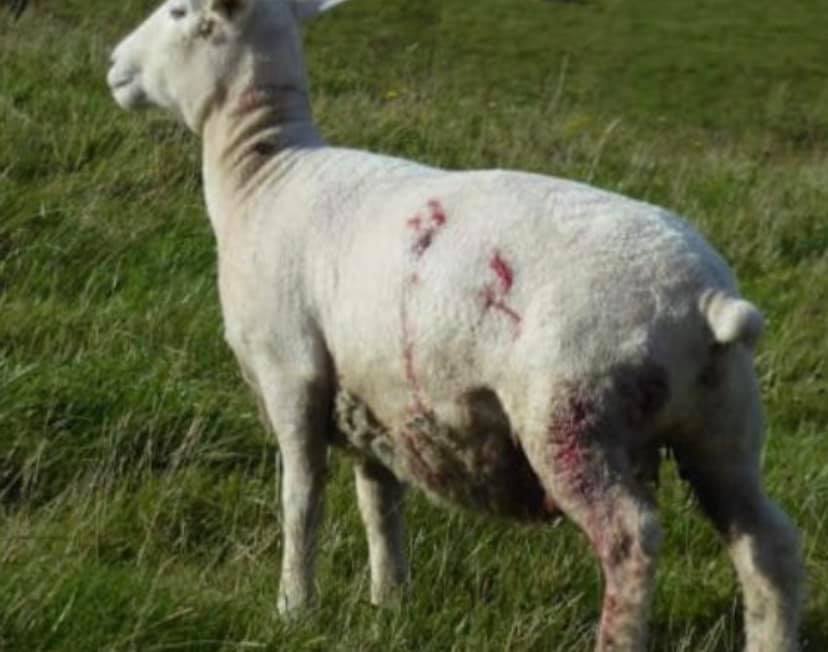
A plea to keep dogs on leads around livestock has been made after a yoga teacher was convicted of not having her pet under control as it attacked sheep in Stanmer Park.
Sussex Police and the CPS have released the 999 call made by fellow dog walker Michael Cass as he tried to chase Hannah McClure’s saluki Helios, which was biting sheep in an enclosed pen.
McClure, who lives in nearby Falmer, told Brighton Magistrates Court last month she had been trying to calmly call the dog away.
Now, as the lambing season has begun, both Brighton and Hove Council and Sussex Police are stressing the importance of keeping dogs under control.
Sergeant Carlo Leone, from Sussex Police’s rural crime unit, said: “We have received a number of reports of animals owned by people from more urban areas disturbing livestock in rural areas, particularly since the first covid lockdown.
“We would always advise owners to be aware of the specific challenges of walking a dog in the countryside, ensure animals have appropriate training and ideally keep them on a lead at all times.
“The law states that in all areas of designated Open Access land, which includes much of the South Downs, all dogs must be on a lead shorter than two metres in length between 1 March and 31 July. This is to protect lambs, calves and ground nesting birds.
“Farmers also reserve the right during this period to close rights of way for up to 28 days and we would ask that countryside users are respectful of any such decision.”
A council spokesman said: “Responsible dog walking is a great way for people to get out, get fit and experience our beautiful countryside.
“But it’s essential that dogs are under proper control at all times. In particular they must always be on a lead near livestock.
“Our tenant farmers have animals killed and maimed every year through dog attacks. This is terrible for the farmers and it is very avoidable.
“Dog walkers must act responsibly when walking dogs, and adhere to the Countryside Code at all times.
“This is not only to protect lambs and other livestock – but also to protect our wildlife, which can easily be disturbed.
“From now until mid-September we would ask dog walkers and their dogs to stick to paths to protect ground nesting birds.
“Our team of park rangers is working to educate dogwalkers at our re-wilding project at Waterhall and raise awareness among dog owners generally.
“On Thursday 6 April the team is holding a special free Woof Walk at Waterhall from 10am to midday.
“Dog walkers can bring their four-legged friends along a walk to learn more about what makes Chalk Grassland so special, and how they can help protect the incredible wildlife found at Waterhall.
“Our City Downland Estate Plan aims to improve public access to the Downs. But increased access needs to go hand-in-hand with raising public awareness of the circumstances in which public access has to be restricted – such as the lambing season.
“Please also remember to bag and bin dog poo.”
Sheep worrying stats
- The National Sheep Association in 2022 stated that livestock worrying costs farmers an average £1,232pa and that only 3% of dog owners who cause livestock worrying report themselves for the matter.
- NFU data from 2022 showed that livestock worrying insurance claims amounted to £1.8m. The same study showed that almost half of these dog owners believed that their dogs were incapable of causing harm.
- A Farm Safety Foundation survey in 2019-20 found that 80% of farmers under 40 ranked poor MH as the biggest issue facing farming.
- 2020 Zero Suicide Alliance quoted an ONS survey that found that worryingly male farmers were 3x more likely to take their own life than the national average – that works out as 3 people per week in the farming industry








